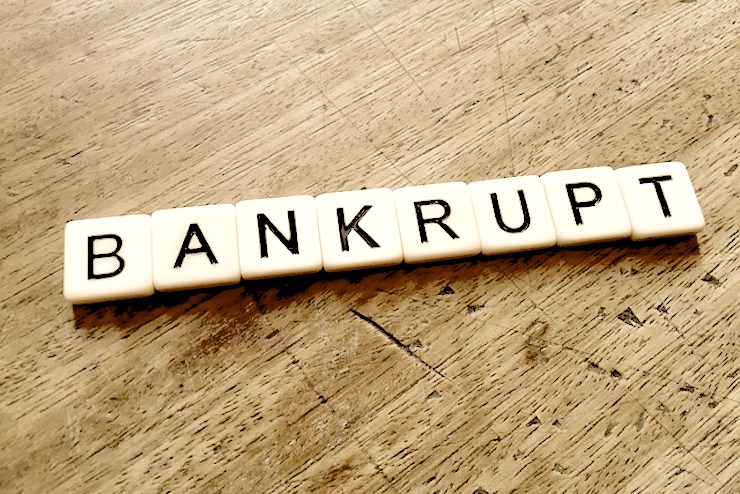When financial difficulties arise, many people in Louisville, ky, may consider filing for bankruptcy as a way to get back on track.
However, one primary concern for many people is how bankruptcy will affect their credit.
In this article, I will provide an overview of the different types of bankruptcy available in Louisville, ky, the impact on credit reports and scores, and tips for rebuilding credit after bankruptcy.
So, let’s get started.
Types of Bankruptcy in Louisville, ky
There are two main types of bankruptcy available in Louisville, ky: Chapter 7 and Chapter 13.
Each type of bankruptcy has its own set of rules and requirements, and the impact on credit will vary depending on which type is chosen.
Chapter 7 Bankruptcy
Chapter 7 bankruptcy, also known as “liquidation” bankruptcy, is the most common type of bankruptcy filed in Louisville, ky. This type of bankruptcy allows individuals to discharge most of their unsecured debt, such as credit card debt and medical bills.
However, in exchange for the discharge of debt, the debtor’s non-exempt assets may be sold to pay off creditors.
Having a Chapter 7 bankruptcy affects your credit significantly. Credit scores can be negatively affected by a Chapter 7 bankruptcy for a period of 10 years.
Therefore, it’s important to note that while the debt may be discharged, the negative impact on credit will remain.
Read More How to Qualify for Chapter 7 Bankruptcy
Chapter 13 Bankruptcy
An alternative to Chapter 7 bankruptcy is Chapter 13 bankruptcy, also known as “reorganization bankruptcy”.
For individuals with regular income, this type of bankruptcy allows them to keep their assets while paying back a portion of their debt over a period of 3-5 years.
The impact on credit from a Chapter 13 bankruptcy is less severe than from a Chapter 7 bankruptcy. A Chapter 13 bankruptcy will remain on a credit report for 7 years and may cause a less significant drop in credit scores than a Chapter 7 bankruptcy.
Additionally, because the individual is repaying a portion of their debt, it can demonstrate a positive payment history to creditors.
Read More About Qualify for Chapter 13
Credit Report and Score Impact
When a person files for bankruptcy, the court will notify the major credit reporting agencies, and the bankruptcy will appear on the individual’s credit report. The impact on credit scores will vary depending on a person’s credit history and the type of bankruptcy filed.
Moreover, a bankruptcy filing will typically cause a significant drop in credit scores.
However, the longer the individual has had a positive credit history before the bankruptcy, the less severe the impact will be.
Additionally, the impact may be less severe if the individual has a history of late or missed payments before the bankruptcy.
Rebuilding Credit After Bankruptcy
Although the impact of bankruptcy on credit can be significant, it is possible to rebuild credit after bankruptcy. Here are a few tips to help you get back on track:
- Obtain a secured credit card: A secured credit card is a type of credit card that is backed by a deposit. These types of credit cards are often easier to obtain after bankruptcy and can help rebuild credit.
- Keep balances low: High credit card balances can hurt credit scores, so it’s important to keep balances low, even if the credit limit is high.
- Make payments on time: Late or missed payments can hurt credit scores, so it’s essential to make payments on time every time.
- Consider credit counselling or credit repair services: Credit counselling or credit repair services can provide guidance and assistance to help rebuild credit after bankruptcy.
Do Bankruptcies Improve Credit Ratings?
While bankruptcy may have a negative effect on a person’s credit rating in the short term, it may help in the long run.
Here are a few ways in which a bankruptcy filing can help credit:
- Discharge of debt: One of the main benefits of a bankruptcy filing is the discharge of unsecured debt, such as credit card debt and medical bills. This can help to improve a person’s debt-to-income ratio, which is a significant factor in credit scores.
- Stopping collection efforts: Once a person files for bankruptcy, an automatic stay is put in place, which stops all collection efforts by creditors. This can help to improve a person’s credit score by preventing late payments or defaults on accounts.
- Credit counselling: Many bankruptcy filers are required to complete credit counselling as part of the bankruptcy process. This can help them to understand their finances better, create a budget and develop a plan for rebuilding credit.
- Positive payment history: If a person files for Chapter 13 bankruptcy, they will be required to make payments to a trustee over a period of 3-5 years. This can demonstrate a positive payment history to creditors and may help to improve a person’s credit score.
Here’s a Quick Summary
The decision to file for bankruptcy can be difficult, but it may be necessary to get back on track financially for some Louisville residents. The impact on credit can be significant, but it is possible to rebuild credit after bankruptcy.
Individuals can work towards rebuilding their credit after bankruptcy by obtaining a secured credit card, keeping balances low, making payments on time, and considering credit counselling or credit repair services.
One of the important things is to remember that the negative impact on credit will remain for some time, usually 10 years for chapter 7 and 7 years for chapter 13, but with time and consistent effort, credit can be rebuilt.
However, it’s always best to consult with a bankruptcy attorney to fully understand the implications of filing for bankruptcy and to devise a plan to rebuild credit.







